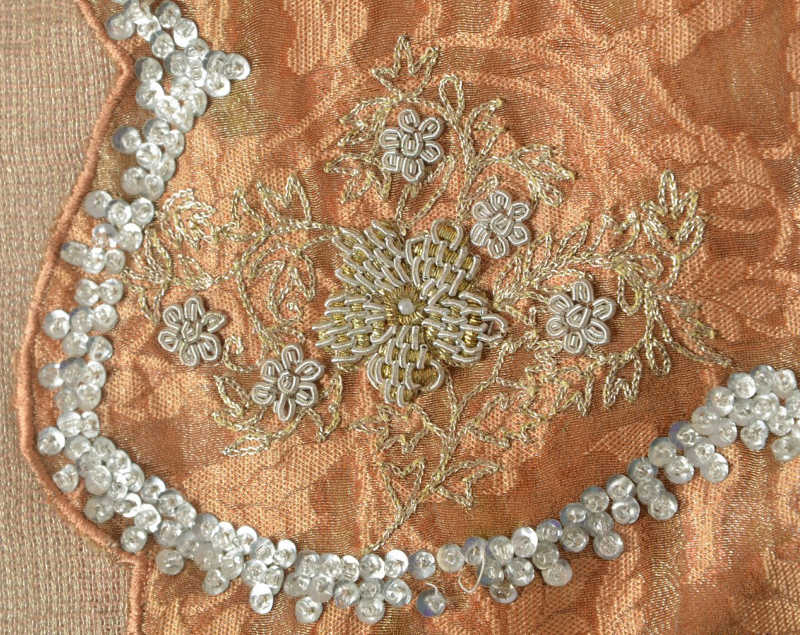===
0610,
1
===

=== |
 |
hāth uṭhānā : 'To withdraw the hand (from); to keep the hands off; to leave off, cease, desist (from), refrain (from), keep (from); to abandon, forego, relinquish, renounce'. (Platts p.112-13)
FWP:
SETS == HUMOR; IDIOMS
MOTIFS == CHAK-E GAREBAN
NAMES
TERMSNow the speaker has 'lifted his hand from' his collar [garebāñ se hāth uṭhāyā]. Of course, the idiom means in a general sense 'given up on'; it could almost be translated as 'washed his hands of', except that the hand-washing idiom in English contains a strong sense of moral disapproval. But the Urdu idiom is enjoyable because in the ghazal world, as we know, the primary threat to the lover's collar is the lover's own hands, as he rips open his (kurta-style, slit-like) collar in madness or grief. In fact there's another idiom, 'to be hand and collar' [dast-o-garebāñ honā], that conveys the idea of extreme intimacy.
So the first line, in its intransitiveness, is really quite funny-- 'rip after rip occurred', every time the speaker caused the collar to be sewn up! The speaker doesn't tell us why the rips occurred; the intransitive grammar makes it sound as if some mysterious force might be attacking the collar. Is the lover pettishly seeking to blame that particular collar ( us garebāñ hī ), rather than himself, for those annoying rips? Or is he so truly crazed that he doesn't know what he's doing, and after his frenzy is over he notices that somehow or other his collar has once again been ripped open? In either case, we know that if he truly 'lifted his hand from' the collar, that would be the best thing that could happen to the poor bedraggled piece of fabric.
As so often, we have to choose between 'that collar' and 'this collar'. For general grammatical reasons (the greater presence of vuh than yih in actual usage), I usually go for 'that' unless there's a particular reason to go for 'this'. In the present case, using 'that' emphasizes the hostility and rejection the speaker is expressing toward the collar. But a case could also be made for its being 'this' particular collar that has so vexed the speaker. As usual, the difference is one of nuance, and it doesn't seem worthwhile to take that much (this much?) trouble over it.